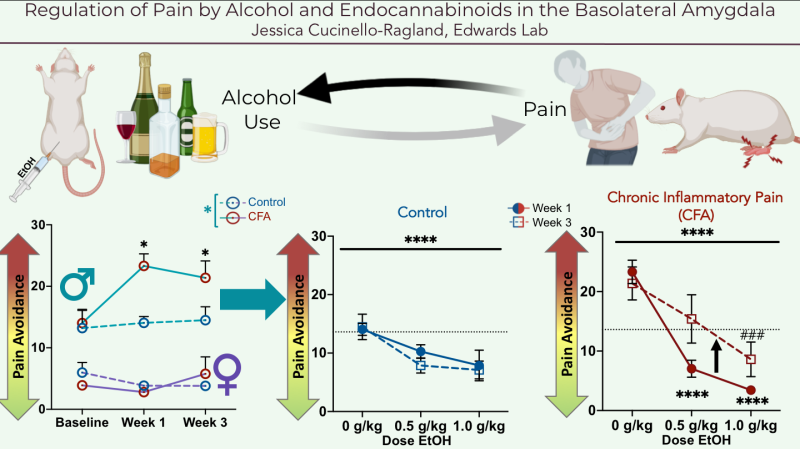The Edwards Lab has previously shown a temporal shift in the analgesic properties of consumed alcohol over the course of persistent inflammatory pain. Unknown is whether the anti-nociceptive effects of alcohol modify pain avoidance behavior in the presence of persistent inflammatory pain and what the temporal neuroadaptations resulting from acute alcohol administration during early and late stages of persistent inflammatory pain are. These ongoing experiments, funded by an F31 award from the NIAAA, are investigating the basolateral amygdala as a neural locus mediating the anti-nociceptive effects of alcohol in the context of persistent inflammatory pain in female and male rats.

Specific Aim 2: To test the hypothesis that acute alcohol and eCB signaling in the BLA reduce chronic inflammatory pain.

